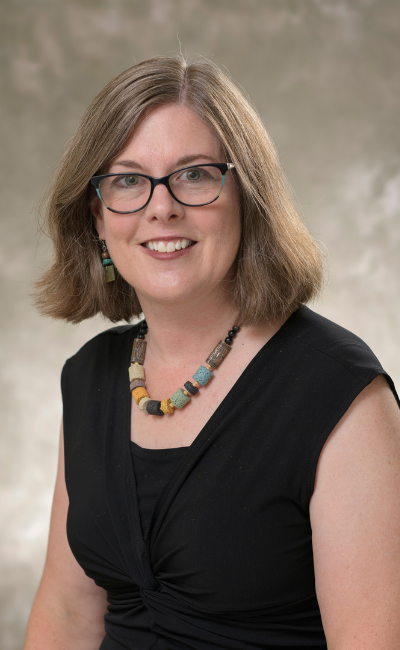The Department of Linguistics at Illinois is one of the oldest modern linguistic departments in the United States.
“Illinois had this really, really wonderful linguistics department right from the get-go of the modern linguistics era,” said Jennifer Cole, professor of linguistics and ILLI co-leader. “Some of the real pioneers in modern linguistics research got their Ph.D.s here in the 1960s and 1970s.”
The program for teaching English as a second language at Illinois is considered one of the oldest in the United States. Charles Osgood, a psychologist at Illinois, was one of the leaders in the field of psycholinguistics, which studies the psychological and neurobiological factors that enable humans to acquire, use, comprehend, and produce language.
ILLI not only incorporates researchers from those fields typically associated with the study of language, but also from the fields of computer science, electrical and computer engineering, educational psychology, and speech and hearing science, among others.
“We can strengthen the network of language researchers across campus, but still mark Beckman as a central point in that network."
—Jennifer Cole
Kara Federmeier, professor of psychology and full-time faculty member in the Cognitive Neuroscience Group, joins Cole, a full-time faculty member in the Cognitive Science Group, as the initiative’s co-leader.
“The Beckman has always been a hub for research in this area,” said Federmeier. “We want to more formally make that clear, and take better advantage of the fact that there is already this structure to press forward into new areas, leveraging the resources that Beckman offers.”
Those resources include newer ways of investigating language, according to Federmeier. Beckman’s cohort of faculty researchers who are interested in technology could prove beneficial to researchers who do not have access to certain technologies or the ability to build tools for improved research.
Such tools can include devices like eye-tracking, which was pioneered by researchers at Illinois. Other tools mark observational, behavioral, computational, and corpus-based work and include human electrophysiological measures (EEG and ERPs); magnetic resonance imaging (structural and functional); ultrasound; optical signals; and stimulation techniques (TDCS and TMS).
Alternately, says Cole, bringing in the expertise of language researchers across campus to the technologists can provide new insights into research questions.
“At Illinois, we have this great language expertise—a lot of big universities have language expertise like we do here, but there are maybe a dozen universities where they’ve got the technology and the language people but no one’s really figured out how to bring this together,” said Cole. “That would be a very exciting development to pioneer in this initiative.”
Cole also believes that researchers with a focus in signal processing and data analytics can find interesting research projects with the data sets provided by language researchers.
“We’ve got the data, we have the scientific questions, but we don’t always have the skills, or the technological know-how to make the most of the data we have,” said Cole. “Those are special skills and they are also represented at Beckman, but in different groups that language researchers don’t traditionally interact with very well.
“We hope that this initiative will bring language research to light and spark interest in people who have something to contribute, but maybe they don’t have a history of language-related research.”
“It benefits everyone across campus to be more inclusive,” said Cole. “We can strengthen the network of language researchers across campus, but still mark Beckman as a central point in that network. The idea of creating an initiative and bringing people together is hard to do without a central organizing place like the Beckman Institute. The culture of interdisciplinary interactions already in place here really facilitates this kind of thing, which then isn’t bounded by Beckman.”
Language and Linguistics as an Early Beckman Focus
In 1985, Jerry Morgan, professor emeritus of linguistics, was involved in early committees to create programs for the newly formed Beckman Institute. He served on the Program Committee for Biology, Behavior and Cognition Center of the Beckman Institute along with William Greenough, professor of psychology; Paul Lauterbur, professor of chemistry who developed the magnetic resonance machine (MRI), Carl Woese, professor of microbiology; and Gerry DeJong, professor of computer science; among others.
“Ideas about interdisciplinary research in cognitive science and artificial intelligence were being kicked around at the time the Beckman Institute was being organized,” said Jennifer Cole, co-chair of the new Illinois Language and Literacy Initiative. “These research areas became part of Beckman. Jerry Morgan was a major player in that.”
Morgan went on to be associate director of Beckman, serving under both Theodore “Ted” Brown and Jiri Jonas.
Trained as Chomskian linguist, Morgan began looking at cognitive aspects of language. In the early 1990s, Morgan investigated how the various subsystems that make up human linguistic abilities interact through the new field of computational linguistics.
Morgan received funding from Motorola to do research on using speech in automobile navigation systems before they existed.
“That was one of the very first large interdisciplinary studies funded at the Beckman Institute,” said Cole, who joined Beckman under Morgan’s invitation.
Today, said Cole, ILLI research builds on this early foundation.
“Linguists and language researchers involved in the early days were visionary in forming interdisciplinary research linking language and technology, delivering new insights into the structure and processing of human language, as well as innovations in the design and implementation of speech and language technologies. This dual, synergistic approach continues to define Beckman research in language and literacy today,” said Cole.
